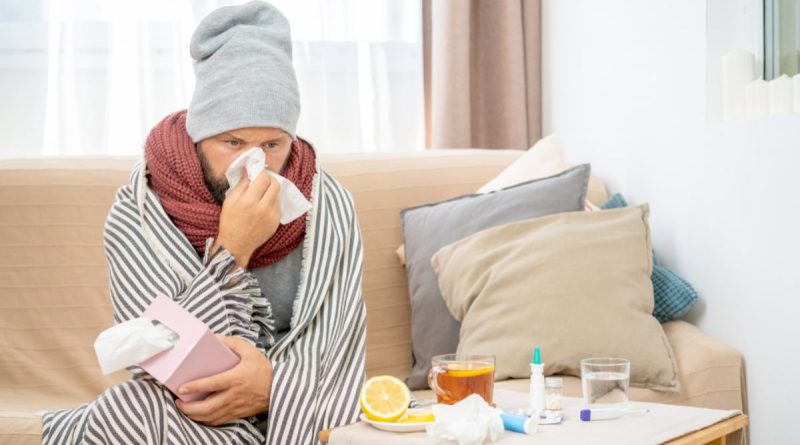How not to catch colds and flu: simple rules
How not to catch colds and flu: simple rules
We have collected the basic methods of confronting colds and viruses, the prevention of which is much more practical than further treatment.
1. Avoid crowds
It’s not necessary to turn into a hermit, go to work only by cab and go to the store only at night. But if possible, plan things so that you don’t get into rush hour. The fact is that influenza and cold germs quickly multiply their strength and spread among large numbers of people. And if you often have to be in a crowd in a confined space, try not to touch your nose, lips and eyes: these parts of the face are the fastest to be infected by bacteria.
2. Wash Your Hands
The main way to fight the spread of bacteria and viruses is to follow simple rules of hygiene. Acute respiratory infections and flu stay and multiply on household items in public places, so it is especially important to wash your hands right after you come home. If you decide to eat on the go and there is no opportunity to wash your hands, a sanitizer, which is convenient to carry in your bag, will do.
3. Sneeze into your elbow.
One hygiene rule that is time to give up is to cover your mouth with your hand when sneezing. It’s best to sneeze into a tissue, but if you don’t have a tissue handy, you can do it into the bend of your elbow. This way, bacteria and viruses won’t get on your hands and spread around the room, provoking a decrease in immunity for co-workers or bus passengers. This will reduce the risk of infecting others, although it won’t get rid of you from getting sick. Be sure to throw away the used wipe and wash your hands afterwards.
4. Be careful how you come into contact with those who are ill.
If you feel like visiting a friend who has a cold, wear a medical mask. It is advisable not to stay too long at a sick person’s house, but to get out into the fresh air, where viruses have much less chance to infect the body. Do not forget about the rules of hygiene, after contact with an infected person it is especially important.
5. Ventilate the room.
Disinfecting wet wipes can be used to wipe down your desk and surrounding items. Flu and cold viruses are literally in the air, so it is necessary to air the room. It is better to leave the room, so as not to sit in a draught and not to get too cold.
6. Humidify the air.
Frosty air does not add moisture to the room, it only refreshes and cools it down. The heating makes the room air dry and irritates the mucous membranes. A humidifier and spraying water from a sprayer would help to solve the problem. Keep in mind that without ventilation of a warm room, in which there may be carriers of colds, viruses develop even faster, so humidification and ventilation should be organized alternately.
7. Strengthen the immune system
The main way to fight colds and flu is to make the body resistant to them. Strength for the immune system should be taken from adequate rest, a healthy lifestyle and proper nutrition. Variety in your diet with fruits and vegetables. You can add vitamin complexes in consultation with your doctor. Try to get enough sleep, include aerobic activity in your schedule and limit alcohol consumption.
8. Get vaccinated.
Modern vaccinations develop immunity against the disease, so consult a therapist about possible vaccinations. There are several types and subspecies of influenza, and vaccines contain their most common variants, greatly reducing the risk of contracting viruses that are common this season.
9. Try not to be nervous.
Research by Dr. Dilwar Hussain of the Indian Institute of Technology Guwahati confirms that psychological stress suppresses body functions and can cause disease and reduced immunity. Increased levels of the hormone cortisol are not only bad for physical well-being, but also for beauty: it causes flaky skin, dull hair and contributes to acne.
10. At the first symptoms, give yourself a break
According to the WHO, the flu manifests itself suddenly and with acute symptoms: joint, head and muscle pains, cough, high fever. You can’t get back on your feet quickly, your body needs proper rest and recovery. And some people prefer to bear colds on their feet, because a slight cold, fever or cough does not interfere much in daily activities. This is wrong! Firstly, going to work with such symptoms, you aggravate the course of the disease and provoke complications. Secondly, you put those around you at risk by increasing the development of the virus in the external environment. Stay at home and see your doctor if you have such ailments.
11. Take vitamin D
During the fall and winter, the body lacks sunlight, which produces vitamin D. Its deficiency can lead to cardiovascular disease and weakened immunity. Adults to prevent vitamin D deficiency is recommended to receive at least 600-800 IU per day, and with insufficiency – at least 1500-2000 IU. It is possible to replenish the substance in the body by adding to the diet rich in it products. First of all, these are fatty fish: wild salmon, tuna and sardines, as well as other foods: egg yolks, beef liver, butter and milk.
